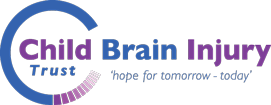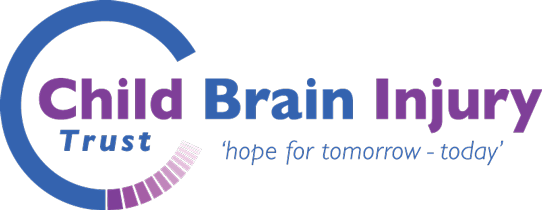Child's name: Sophia Hughes
Support Coordinator's name:
Location: Oxfordshire
“I acquired my brain injury when I was 11, and am (like the Child Brain Injury Trust ) turning 30 this year.
I was in a car accident with my grandmother and brother in 2003 after a trip to the model village in Beaconsfield during the Easter holidays. We were taken to the John Radcliffe hospital in Oxford and treated for minor injuries.
While my brother and grandmother recovered, I deteriorated and (according to my parents) was bright yellow and looked pregnant.
Four days after being admitted, on what was then Easter Sunday, I was eventually taken to theatre and had a cardiac arrest due to sepsis caused by an unnoticed ruptured bowel. This is how I got my brain injury.
I spent the next 4 months in hospital re-learning everything – walking, reading, speaking, dressing, how to use a knife and fork etc. It was hard work. I then spent another four months in re-hab (The Chilren’s Trust, Tadworth in Surrey) to continue my re-learning. I was discharged in time for Christmas 2003, but still needed a wheelchair for some journeys as I had lost a lot of lower-body strength from being in bed and not walking. I went back to school part-time, but my friends treated me differently because of my disability. My cognitive fatigue also made school very difficult as I needed to get a taxi there and back – I didn’t have the mental capacity to use the tube like I had before.

Mum made the decision for us (her, my brother and I) to move to Oxford in Summer 2004 so that I could go to a school that I could walk to and be closer to our Dad (who already lived in Oxfordshire). I repeated Year 8 as I had missed most of it from being in hospital and re-hab and made new friends who hadn’t known me ‘before’ so wouldn’t notice any difference in ‘me’.
I made some nice friends who were kind and didn’t treat me differently, even though they knew I had a brain injury and needed some extra help with my learning. I had consolidation lessons because of my poor short-term memory. The Child Brain Injury Trust helped a lot with educating the teachers about what support I was likely to need. The charity also provided my Mum with helpful and reassuring support and assisted us with getting me a Blue Badge.
I worked very hard and got 3 As, 5 Bs and 1 C in my GCSEs. I then forced myself through A-Levels as that’s what I felt ‘pre-Sophie’ would have done. I needed extra time and rest breaks, including a sleep during my A-Level exams, but I achieved 3 Cs.
I struggled a lot with people who didn’t understand my difficulties as I present as ‘normal’ so they couldn’t understand why I had exam allowances like extra time. They didn’t see how knackered I was after school and in need of a sleep as soon as I got home.
However, I went on to do a degree in Psychology and Counselling in Swansea. It was very intense and extremely difficult, and I had to do my final year over two years because of my fatigue, but I got a 2:1 overall (but firsts in my Psychology and Counselling dissertations) so it was worth it.
The university agreed to let me stay in the same room in Halls for the duration of my degree which made life a lot easier. I also met a very nice person who lived with me in our little flat for the whole time.

From 2003-2013 I had a legal case against the hospital for gross negligence, which they didn’t admit to until 2007. It was very difficult as we had to prove how much I’d lost because of my ABI, and this was very traumatic for all of us. My Mum had to take me to lots of appointments with neurologists for both sides which made me very fatigued.
In 2005 I had two tonic-clonic seizures – one at home and one that started at school and I needed to be paralysed for as I wouldn’t stop convulsing. I was put on anti-convulsant medication, which stopped my epilepsy until 2007 when I started having ‘absences’ which were diagnosed as complex-partial seizures. I still suffer from these and they cause memory loss and often severe fatigue.
My Mum forced me to start dance lessons in 2014 as I’m not an active person and she thought I could use the exercise as well as interacting with new people. It was here that I met my (now) husband and we’re very happy together.
Yes, my ABI still has a significant impact on my life – my fatigue. epilepsy and STM problems are what affect my life the most, but I have ways to deal with/compensate for them. My ABI does affect what my husband Simon and I are able to do, but I can now do most things a ‘normal’ person could do. I’m currently studying a module in Psychology with the Open University, which I’m finding challenging but interesting.
I hope you’ve liked reading my story and it gives you some hope. I think hope is especially important during the early days, and then encouragement from others to continue on your journey.”



